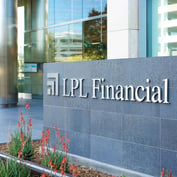What You Need to Know
- Italy and Taiwan extract among the highest fees and expenses from investors, the firm found.
- Fees are falling in many markets due to asset flows to cheaper funds and repricing of investments, study co-author Grant Kennaway says.
- Price wars in the ETF space have put downward pressure on fund fees worldwide.
Morningstar’s manager research team assigned top grades to the U.S., Australia and the Netherlands, indicating that these markets are the most investor friendly in terms of fees and expenses, according to the first chapter of the firm’s biannual Global Investor Experience report, published Wednesday.
Morningstar assigned bottom grades to Italy and Taiwan, denoting that these fund markets extract among the highest fees and expenses from investors.
Between top and bottom grades, the manager research team can also assign grades of above average, average and below average.
“The good news for global fund investors is that in many markets, fees are falling, driven by a combination of asset flows to cheaper funds and the repricing of existing investments,” Grant Kennaway, head of manager selection at Morningstar and a co-author of the study, said in a statement.
“The increased prevalence of unbundled fund fees enables transparency and empowers investor success.”
Kennaway noted, however, that the global fund industry structure perpetuates use of upfront fees; the high prevalence of embedded ongoing commissions across 18 European and Asian markets can result in a lack of clarity for investors.
“We believe this can create misaligned incentives that benefit distributors, notably banks, more than investors,” he said.
Morningstar said the new study primarily considers publicly available open-end funds and ETFs. Researchers evaluated markets based on the asset-weighted median expense ratio by market in addition to the structure and disclosure around performance fees and investors’ ability to avoid loads or ongoing commissions.
The study breaks up the markets into allocation, equity and fixed income funds. The expense ratio calculations consider both funds available for sale in the marketplace and locally domiciled ones.
Fee Trends
The new research found that asset-weighted median expense ratios for domestic and available-for-sale funds in the majority of the 26 markets studied fell since the 2019 study. For domestically domiciled funds, 17 allocation and equity funds each reported reduced fees.









 March 30, 2022 at 03:11 PM
March 30, 2022 at 03:11 PM











